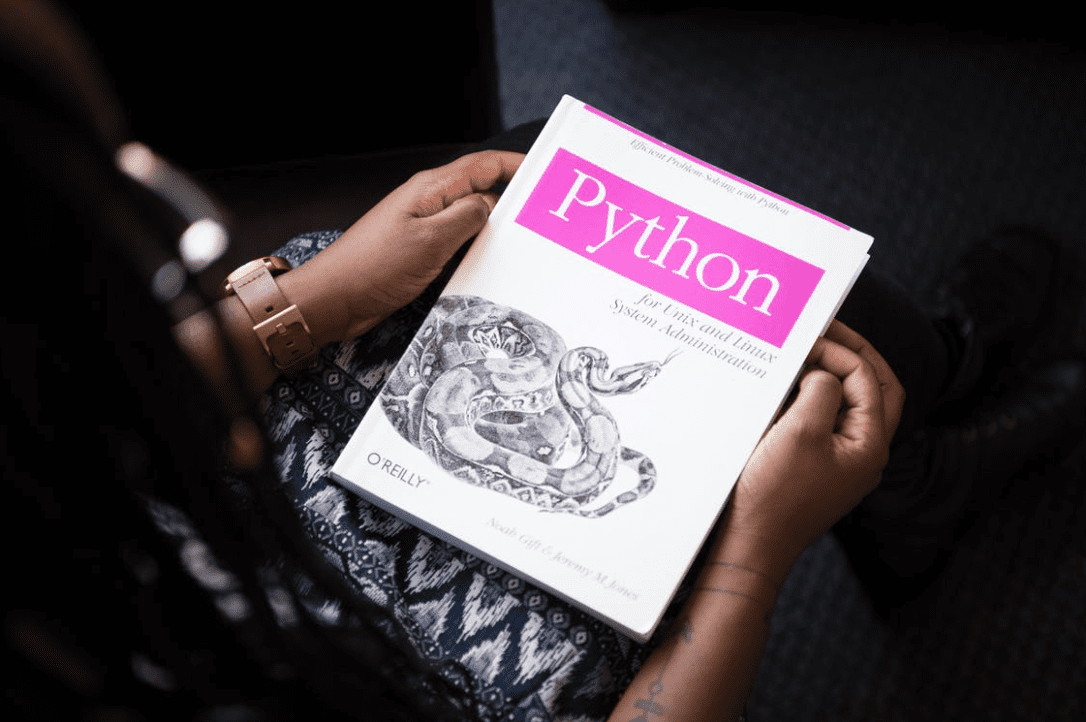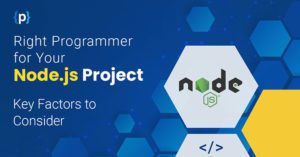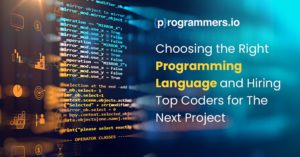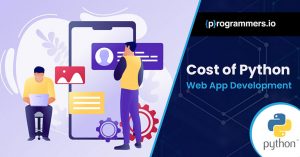Python is an excellent choice for businesses looking to adopt the latest market trends and develop applications quicker. Software engineers like Python because:
- It is dynamically-typed, which makes it more readable
- It has a broad array of libraries, making it readily accessible to programmers
- It supports building scalable applications, so you can manage tasks of different sizes
- It is used to design prototypes and MVPs in a short period
As per StackOverflow, Python is one of the most popular programming languages. Due to its versatile nature, you can use Python to address a vast array of challenges effectively. However, before you move ahead with Python, you should keep in mind that hiring Python developers takes a significant amount of time and effort. This will guide will help you to make your job easy.


Skills to Look For In Python Developers
You need to look at defined skills; this is what makes Python developers stand out from the rest. Every organization assesses Python candidates for a number of technical and non-technical skills. These include the following:
Technical Expertise
A developer must be familiar with various Python versions. Gaining knowledge of a diverse range of modules, libraries, and frameworks is important.
Essential Communication Skills
In many workplaces, communication holds as much importance as development does. That’s because your developers are likely to work in teams where they share ideas and thoughts with each other.
Critical Thinking
Frameworks help make the development process easier. They also help minimize the time needed for developing applications. Developers must know how to think in ways to improve the efficiency of their work environment.
Problem Solving Ability
From the requirements analysis stage to the deployment, problems can occur at any stage. A developer must be alert to address any issues that emerge out of nowhere.
Finding the Right Python Expert Through Interview Process
Spotting the right Python developer can be challenging during the recruitment process. Here are some tips that can help you:
Resume Screening
While going through resumes and CVs, you will have to spot specific tools and technologies that Python developers mostly use. These include the following:
- Build tools: tox, pip
- Data analysis tools: SciPy, NumPy
- Object relational mapping (ORM) tool: SQL Alchemy and Django ORM
- Testing frameworks: UnitTest, py.test
- Website frameworks: Flask, Django
A candidate having plenty of experience in these tools will serve you well in the long run.
Interviews
Similar to other hiring processes, you will have to take interviews of your candidates via video or phone calls. These interviews provide you with the opportunity to learn about your candidates more closely, ask detailed questions of their skills and work experience, and at the same time, evaluate their communication skills. Have your IT department create a strong questionnaire containing complex questions so you can test both the knowledge and problem-solving skills of your candidates.
For web development, your interviews should test the following:
- Decompose business requirements to system requirements
- Database expertise (SQL, schema design, transaction, index)
- Experience in systems operations (logging, monitoring, deployment)
If the job is related to data, here is what you should focus on:
- Statistical and analytics skills
- Machine learning knowledge
- Data manipulation
- Development of data pipelines
Technical Screening through Tests
Don’t only rely on a candidate’s experience. You also have to validate the abilities in their resume with adequate tests. You can find many online coding tests and even come with your own. Perhaps, the best way to do is to present them with real-life Python issues you faced in your projects. This will help you to determine their suitability in a more reliable manner.
Python Developer Interview Questions
You can ask the following questions to verify applicant’s Python knowledge:
- Is the concept of multi-threading different in Python? Explain how it works.
- Do objects in Python come under the first class object category?
- What are decorators and why use them?
- How does memory management work in Python?
- Why is Python an interpreted language?
- What is the difference between local and global variables?
- What is the difference between arrays and lists?
- When to use negative indexes?
- How does monkey patching work in Python?
- Is multiple inheritance supported in Python?
- Discuss Django’s architecture.
Tips for Hiring a Python Programmer
Here are some tips to following to find the right candidate:
- Use AI-powered tools to search for candidates.
- Ask candidates to provide references of past clients and colleagues. After the interview, contact them to learn about your candidate’s personality, ethics, and untapped potential.
- You have to be flexible. No one gets the perfect candidate having all the required skills listed in the job description. If you find a good candidate having most of the required skills, keep in mind that the remaining skills can be taught easily.
Final Thoughts
Hiring the right Python developer is a time-consuming and complicated process. However, if you succeed in hiring the right person for the job, your organization will thrive. The skill-set and experience of a Python developer will enable them to take part in different types of projects, including web application development, desktop application development, Internet of Things (IoT) development, and data science.






